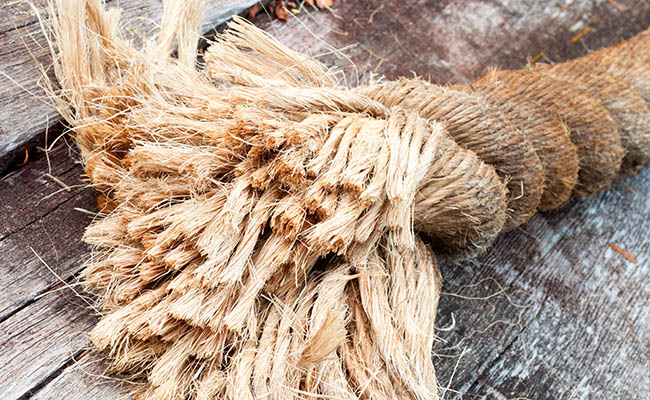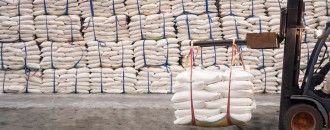
India likely to persuade Bangladesh for lifting jute export ban
Deepak Kumar | The Dollar Business
 Textile Minister Santosh Kumar Gangwar held a meeting with the stakeholders to discuss ways to streamline the jute price
Textile Minister Santosh Kumar Gangwar held a meeting with the stakeholders to discuss ways to streamline the jute priceTaking note of the steep hike in jute price, the Indian government is likely to approach Bangladesh and ask for the withdrawal of ban on the export of raw jute from that country. Bangladesh government had on November 3 imposed a blanket ban on the outbound shipment of raw jute in order to ensure adequate supply of fibre within the domestic market and help sack makers. The Indian Textiles Ministry has asked the Ministry of Commerce as well as the External Affairs Ministry to persuade the Bangladeshi authorities to allow jute exports. “Department of Commerce and Ministry of External Affairs have been requested to take up the matter with their counterparts in Republic of Bangladesh for lifting the ban on export of raw jute by Bangladesh,” a Textiles Ministry statement said on Wednesday. The request has been sent as part of the three-pronged strategy formulated by the ministry to help the textiles industry, which has been facing challenges in the domestic as well as international market due to sharp increase in the price of jute. The strategy was formulated after Textile Minister Santosh Kumar Gangwar held a meeting with the stakeholders on Monday to discuss ways to streamline the jute price in the country. “Jute Commissioner has been requested to take appropriate measures for notifying stock limits for raw jute for balers, traders and millers and to undertake de-hoarding measures with the help of state governments, so that jute produced during the season becomes available for jute mills for continuing their production, as was last done in 2005,” the statement said. During the meeting, Gangwar also emphasised on promoting jute cultivation and urged the state governments and agriculture departments to evolve a long-term strategy to encourage jute cultivation and check its downward trend. The ban imposed on the exports of raw jute from Bangladesh has led to a steep hike in the price of jute in India. The move has also affected the Bangladeshi exporters who largely depend on their shipments to India, Nepal and other countries in the region. “If the ban is taken off then the local consumption will suffer. We need jute in our domestic market. But I think, jute exporters and enterprises have been feeling the heat since they highly depend on exports of jute,” Bangladesh Jute Association (BJA) Secretary Abdul Quayyum told the Dollar Business. Indicating a further extension of ban on jute shipments, the Bangladesh Jute Mills Corporation (BJMC) Director (Production & Jute) A K Nazmuzzaman said the extension is likely due to a surge in domestic demand but it is too early to comment on the possibilities. “We are expecting a further announcement around November 30, that’s when we will be in a position to confirm if the ban will be extended,” Nazmuzzaman told The Dollar Business. “Bangladesh requires a lot of raw jute for its packaging industry. The country’s jute industry has been on a losing streak. But we are quite optimistic that the scenario is going to change from the next month. That’s when we shall be open for business,” Nazmuzzaman said.
November 26, 2015 | 4:39pm IST.





 to success.
to success.